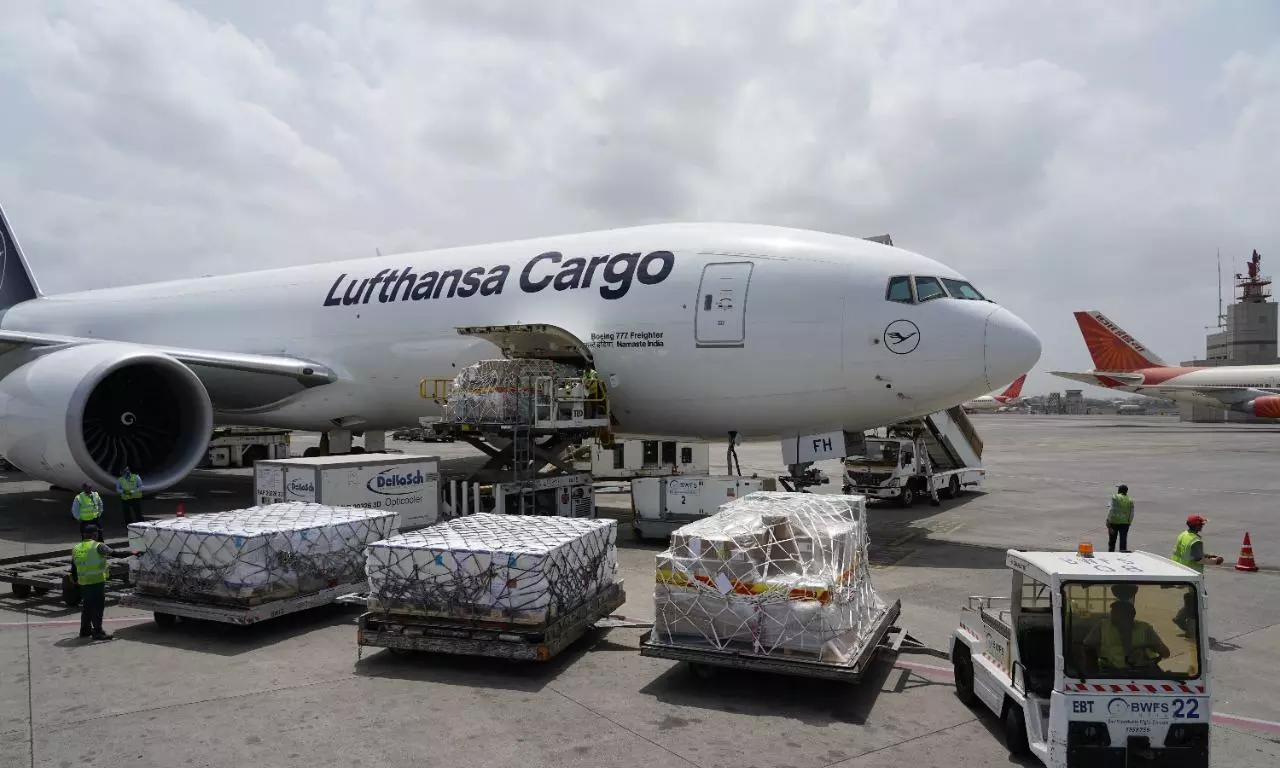IATA expects air cargo revenue to be above $200bn in 2022
Cargo markets expected to come under increased pressure in 2023, revenues likely to be $149.4 billion

Air cargo revenue is expected to reach $201.4 billion in 2022, largely unchanged from 2021 and more than double the $100.8 billion in 2019, helping airlines reduce losses, according to the latest update from the International Air Transport Association (IATA).
"In 2022, airline net losses are expected to be $6.9 billion (an improvement on the $9.7 billion loss for 2022 in IATA's June outlook). This is significantly better than losses of $42 billion and $137.7 billion in 2021 and 2020, respectively."
Overall revenues are expected to be $727 billion, an increase 44 percent compared to 2021, the release added.
In 2023, airlines are expected to post a small net profit of $4.7 billion on revenues of $779 billion — a 0.6 percent net profit margin. It will be the first profit since 2019 when industry net profits were $26.4 billion (3.1 percent net profit margin), the release said.
"Resilience has been the hallmark for airlines in the Covid-19 crisis," says Willie Walsh, Director General, IATA. "As we look to 2023, the financial recovery will take shape with a first industry profit since 2019. That is a great achievement considering the scale of the financial and economic damage caused by government imposed pandemic restrictions. But a $4.7 billion profit on industry revenues of $779 billion also illustrates that there is much more ground to cover to put the global industry on a solid financial footing.
"Many airlines are sufficiently profitable to attract the capital needed to drive the industry forward as it decarbonises. Many others are struggling for a variety of reasons. These include onerous regulation, high costs, inconsistent government policies, inefficient infrastructure and a value chain where the rewards of connecting the world are not equitably distributed."
Despite the economic uncertainties, there are plenty of reasons to be optimistic about 2023, Walsh added. "Lower oil price inflation and continuing pent-up demand should help to keep costs in check as the strong growth trend continues. At the same time, with such thin margins, even an insignificant shift in any one of these variables has the potential to shift the balance into negative territory. Vigilance and flexibility will be key."
Cargo revenue to drop in 2023
Cargo markets are expected to come under increased pressure in 2023. Revenues are expected to be $149.4 billion, $52 billion less than 2022 but still $48.6 billion more than 2019. "With economic uncertainty, cargo volumes are expected to decrease to 57.7 million tonnes from a peak of 65.6 million tonnes in 2021. As belly capacity grows in line with the recovery in passenger markets, yields are expected to take a significant step back. IATA expects a fall of 22.6 percent in cargo yields, mostly in the latter part of the year when the impact of inflation-cooling measures are expected to bite. To put the yield decline in context, cargo yields grew by 52.5 percent in 2020, 24.2 percent in 2021 and 7.2 percent in 2022. Even the sizable and expected decline leaves cargo yields well-above pre-Covid levels."
Regional outlook
North America is the only region to return to profitability in 2022 based on IATA estimates. "Two regions will join ranks with North America in this respect in 2023: Europe and the Middle East while Latin America, Africa and Asia-Pacific will remain in the red."
North American carriers are expected to realise profits of $9.9 billion in 2022 and $11.4 billion in 2023, the update added.
European carriers are expected to see a loss of $3.1 billion in 2022 and a profit of $621 million in 2023. Asia-Pacific carriers are expected to post a loss of $10 billion in 2022, narrowing to a $6.6 billion loss in 2023. African carriers are likely to post a loss of $638 million in 2022, narrowing to a loss of $213 million in 2023.



